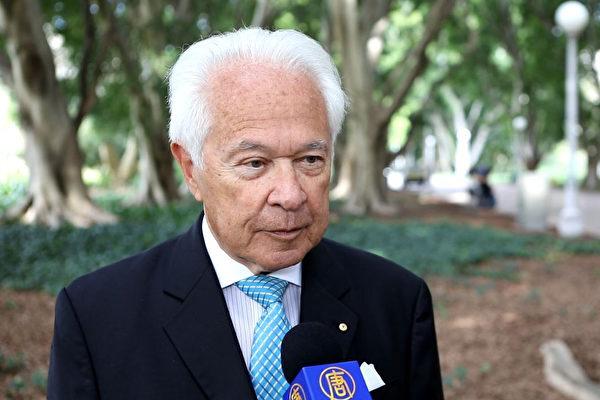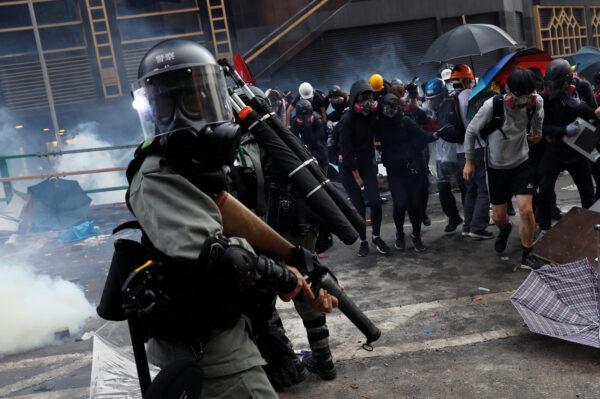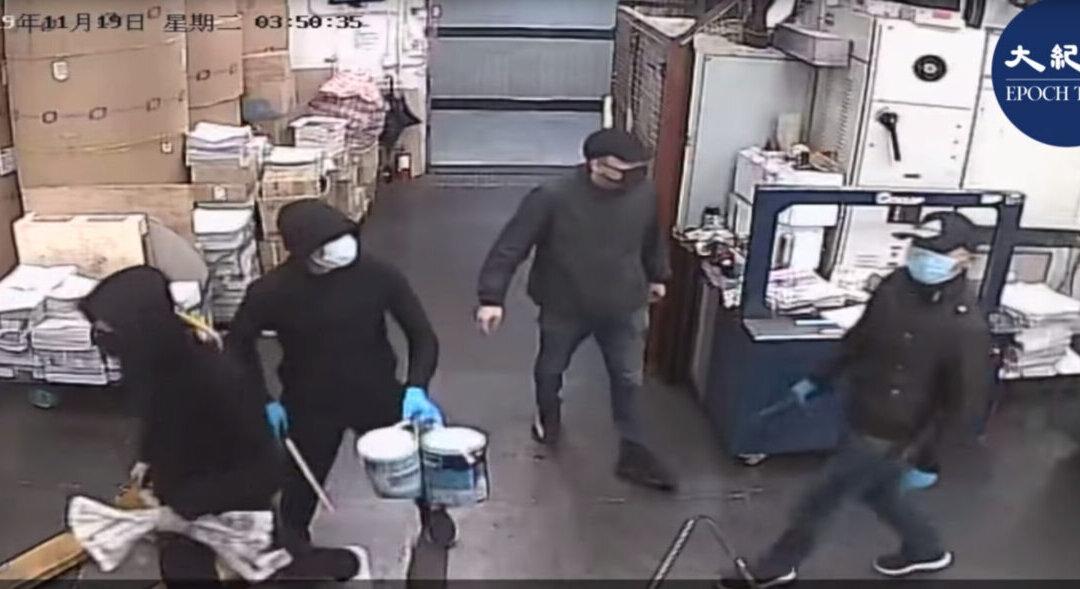The former chairman of the Australian Press Council has condemned the arson attack on the Hong Kong edition of The Epoch Times, saying that the attack should be denounced by democratic governments, organizations, and free people everywhere.
David Flint, who headed the press council between 1987 and 1997, expressed concern over the Nov. 19 attack in which four masked intruders, including two wielding batons, entered the newspaper’s printing warehouse in the neighborhood of Tsuen Wan and lit it on fire.
The fire caused damage to two printing presses, four rolls of paper, and several stacks of newspapers.
“This crime should be denounced by democratic governments, organizations dedicated to the rule of law and freedom of speech and of the press, and by free people everywhere,” Flint told The Epoch Times in a statement. “It should be made clear that the further suppression of freedom of speech and of the press will not be tolerated.”
Flint, who was also the head of the Australian Broadcasting Authority, said The Epoch Times is a respected newspaper around the world for its factual reporting. The outlet has also been a leading voice in independent reporting on the protests in Hong Kong in recent months and for its truthful and extensive coverage of mainland China, making it a target of the Chinese Communist Party (CCP), which is known to suppress voices critical of the regime.

“Everyone concerned about the maintenance of freedom of speech and freedom of the press in Hong Kong, as guaranteed in the handover and under Article 27 of the Basic Law, cannot fail to be concerned by the attack on the printing warehouse of one of the few remaining independent news outlets there, The Epoch Times,” he said.
This is also not the first time the Hong Kong editions’s printing operations have been attacked. In February 2006, four thugs broke into the factory and smashed a plate-making machine worth 1 million Hong Kong dollars (about $128,000), forcing the factory to temporarily suspend operations.
Like Flint, other prominent Australians have also expressed concerns about the freedom of the press in Hong Kong following the attack.
Australian lawmaker Craig Kelly told The Epoch Times that the attack was “not just any arson attack, but a violent and calculated assault on free speech and freedom on the press.”
Similarly, Dr. Chongyi Feng, the associate professor in China Studies at the University of Technology Sydney, said he was not surprised that The Epoch Times has become “a thorn in the side” of the CCP because the publication has long been standing up to the regime’s propaganda.
“There are not many media left in HK who do not ‘dance’ with the CCP, except for The Epoch Times and Apple Daily. Since The Epoch Times has long been standing against the CCP’s propaganda, it’s not a surprise that it has become a thorn in the side of the CCP. The CCP has always been good at information censorship,” he told The Epoch Times.
Feng, who is a vocal critic of CCP interference in Australia and around the world, told The Epoch Times he was worried about the current situation in Hong Kong.
The siege at Hong Kong Polytechnic University (PolyU) has “exposed that the Chinese Communist regime and its infiltrated Hong Kong police force have no bottom line. They are challenging human civilization and have no regard for human moral standards,” Feng said.

“People of Hong Kong will not give up. This struggle will be a long war,” he said.
Chuliang Qiu, a retired professor at the University of Queensland, also expressed similar sentiments, saying that he suspects the arson at the printing warehouse appears to be the work of the CCP.
“The CCP and Xi Jinping only want to use violence to maintain their regime and rule,” Qiu told The Epoch Times.
He also underscored the important role The Epoch Times plays in reporting the truth on the situation of the Hong Kong protests, adding that he hopes media around the world would do the same.
“I hope the media around the world will work together to report truthfully and not let Hong Kong become a second Tiananmen,” he said.




